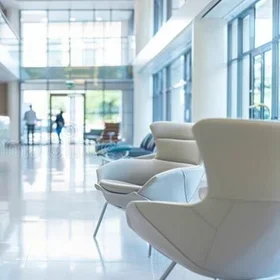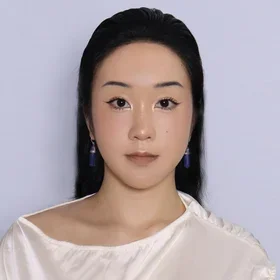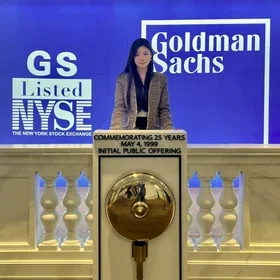Faith Altman (‘15SPS, Negotiation and Conflict Resolution) knows the precise moment she first became interested in conflict resolution. As a high school student in Los Angeles, one of her classmates fell victim to a drive-by shooting that paralyzed him from the waist down. In the midst of the unrest that followed, Altman found herself in the middle of a conflict largely drawn along ethnic lines.
“I remember going back and forth, from one side to the other, just trying to understand their perspectives,” she recalled.
The experience not only inspired her to create a mediation program at the high school (which, she proudly notes, endures to this day), it led Altman to Columbia’s M.S. in Negotiation and Conflict Resolution program. Now, as Director of the Office of Conflict Resolution for the NYC Department of Health and Mental Hygiene, she is drawing on her experience in the program to navigate the current challenges of the Covid-19 pandemic.
“All of this unpredictability and extreme uncertainty exacerbates conflict in the workplace and the organization as a whole,” she said. “With everyone having to be at home and under duress while interacting over email or Zoom, rather than face to face, there’s more likelihood for miscommunication.”
Although she went on to study conflict resolution as an undergraduate at American University, traveling to Cyprus, Turkey, and Greece for research on the Cypriot conflict, Altman wasn’t immediately sure about her career prospects in the field. But after working as a media account executive and considering law school, she resolved to find a path for her passion. She learned about the Columbia program when she read an article by Beth Fisher-Yoshida, the program’s Academic Director, and enrolled in 2014.
“I’d be lying if I said the name recognition of Columbia wasn’t a factor,” said Altman, who was also excited about the opportunity to live close to her grandmother, in New York City. “But I especially loved the fact that the program enabled me to focus on my specific areas of interest—particularly urban violence.”
I especially loved the fact that the program enabled me to focus on my specific areas of interest—particularly urban violence.”
In addition to participating in a summer fellowship that took her to Israel to explore the Israeli-Palestinian conflict in the context of sustainability, Altman traveled with Professor Fisher-Yoshida and a small delegation to Medellin, Colombia, to research the ongoing effects of the country’s violent history of narco-trafficking. She was captivated by youth around the city who used graffiti and street art as a means of nonviolent expression. In fact, this project inspired her to partner with a local filmmaker to produce a documentary, BlackBook Medellin.
“They were both life-changing experiences,” she recalled. “I look back now, four years later, and think that those were some of the greatest times in my life—I was learning so much. Being able to talk to people who are directly impacted by these conflicts is incredible.”
After graduating and later participating in a United Nations fellowship on trauma outreach and prevention, Altman landed what she called her “dream position,” in 2018.
Reflecting on how the program helped her to advance professionally, she credited the courses she took — Barry Sommer’s course on emotional intelligence was a favorite — and the diversity of perspectives from her fellow students with providing the fundamental mindset and skills she relies on each day.
“I don’t remember the way I thought about conflict resolution before the program,” Altman said. “I’ve used everything that I learned to create an entire office.”
I don’t remember the way I thought about conflict resolution before the program. I’ve used everything that I learned to create an entire office.”
With her department engaged in managing the current public health crisis, “it’s been hectic, as you can imagine,” she said. “I’m not on the front lines, but I’m technically still a first responder.” In addition to jumping into the role of coordinating with hospitals and public health labs to ensure that Covid-19 tests are collected, delivered, and processed, she continues to field requests for help with conflict resolution, grateful to be succeeding in the work she’s been passionate about since high school.
“I think that the connections I’ve made while I was in the program have allowed me to feel like I can now thrive in the field,” Altman said. “I don’t consider myself an expert, but I’ve published, and I’m getting requests to review work from people who really are experts in the field. None of this would’ve happened had I not done the program.”
“I think that the connections I’ve made while I was in the program have allowed me to feel like I can now thrive in the field. I don’t consider myself an expert, but I’ve published, and I’m getting requests to review work from people who really are experts in the field. None of this would’ve happened had I not done the program.”
Learn more about the Master of Science in Negotiation & Conflict Resolution at the Columbia University School of Professional Studies.


